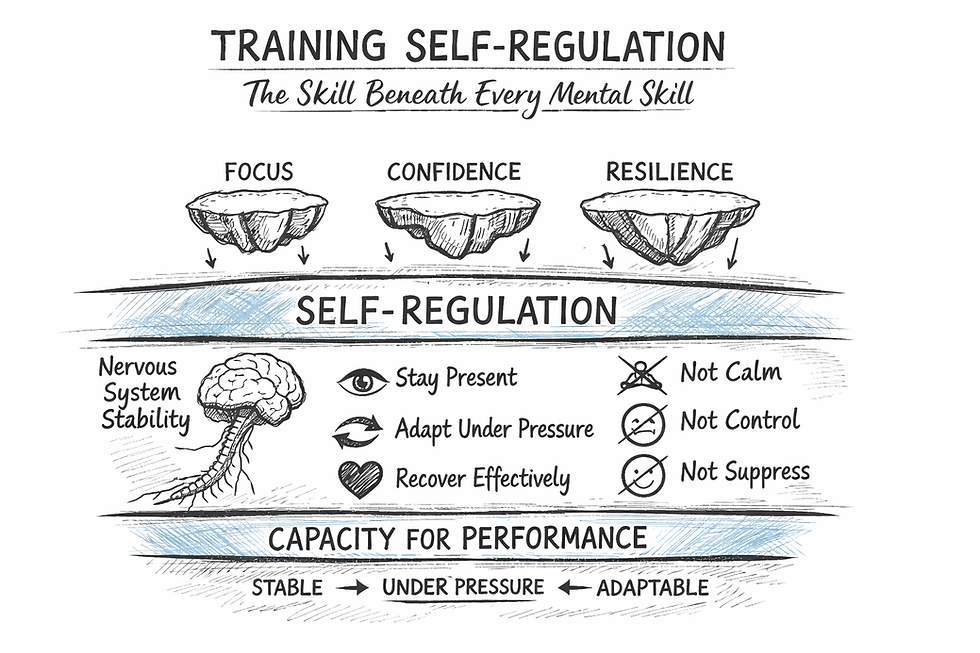How to Take Ownership of Your Game with These 4 Post Game Reflection Questions
- Kate Allgood
- Oct 21, 2022
- 3 min read
Updated: Dec 28, 2023

Having ownership over your performance is a fundamental aspect of your success. One important reason to take ownership is it helps you to choose your own way, and be free in systems and structures that can at times limit the choices you have. It is easy with time to lose some ownership over your performance and game. This can be through putting on others what really you need to own or through highly vested stakeholders overly asserting themselves.
To help with making sure you maintain the ownership over your performance and journey it can help to start off with gauging how much ownership you do have and go from there. Some questions you can ask yourself to start are 1) Do you take full responsibility for everything that impacts your sports performance (physical mental and emotional)? 2) Do you give full effort and hold yourself accountable to the effort you give? 3) Do you make excuses or blame others when you do poorly? To help with gaining or continuing to have ownership over your sports performance here are some post competition reflection questions that are good to ask yourself. By purposefully reflecting and answering the questions you are owning your part in the performance.
Question #1 - What Did I do Well?
It is important to ask your self what you felt you did well, but to also go a layer deeper and then ask yourself what you did to help it go well. What was in your control that you, hopefully, purposefully did to help you. This could be being well prepared or being able to refocus quickly. You want to look at the most controllable thing you did that helped, so that you can continue to do it moving forward.
Question #2 - How can I Improve?
Going to the other end of the spectrum, it is important to own what you feel you can do better, but also most importantly asking yourself how you will get better at it. To make a game plan for what you will do to help make it better. This might be adding in some more practice time around the skill or making sure you do something around your performance you forgot to do the last time.
Question #3 - How Prepared Was I?
This question is for your mental, emotional, physical (technical, conditioning etc) and tactical preparation. Can you walk into your performance knowing there was nothing more you could have done. If you feel you were as prepared as you could have been then look at what you did and how to continue to do so. If you felt you weren't, what can you do to help make it better so you can get to a place where you feel you were as prepared as you could be.
Question #4 - Did I focus through the distractions?
You will get distracted at some point, so answering this question is about looking at how well you noticed getting off track and bringing yourself back. If you felt you did a good job, what helped you do so? What techniques or tools or strategy contributed to it? If you felt you didn't, how come? What do you feel you need to do differently? Is there a skill you need to develop and how will you do so?
To Wrap Up
Owning your game is important and reflecting on your game is a good place to do it. Too often this reflection is done informal or quickly. It requires taking some time so you can dig a bit, and truly find what you did well and how you can improve. If you want help in taking ownership and becoming the athlete you know you can be reach out and see how we can help.
To your success,
Kate
About: Kate Allgood is trained in the field of applied sport psychology. She holds two Masters degrees in psychology where she graduated with distinction. She has spent the past 14 years working one on one with high school, college, Olympic, and professional athletes to help them with their mindset, mental performance and mental skills training. Kate has also been a consultant for professional teams, including the Anaheim Ducks primary minor league affiliate the San Diego Gulls, to help the team and players develop their mental game. It is important to note that while Kate has graduate school training in applied sport psychology and general psychology, she does not diagnose or treat clinical disorders, and is not a licensed psychologist.
**The information provided is not to dispense medical advice or prescribe the use of any technique, either directly or indirectly, as a form of treatment for physical, emotional, or medical problems, without the advice of a physician. The information provided is only to offer information of a general nature to help you in your quest for high performance. If you know or suspect you have a health problem, it is recommended you seek your physician's advice.



Comments